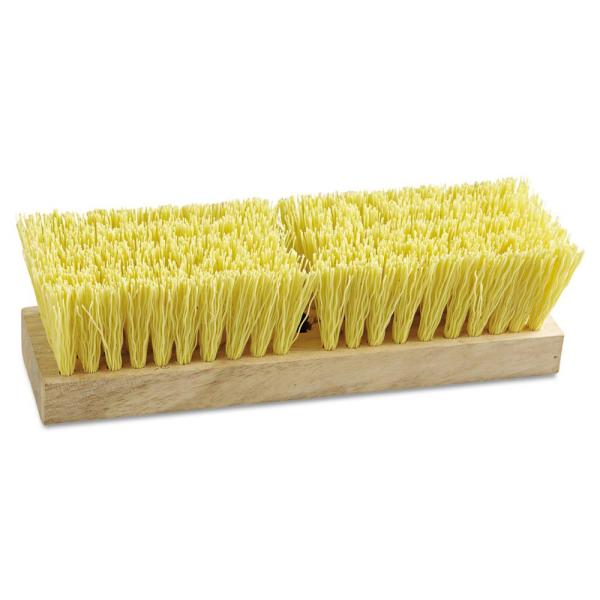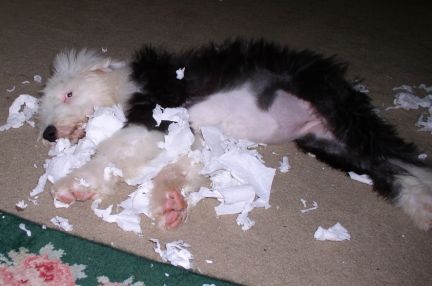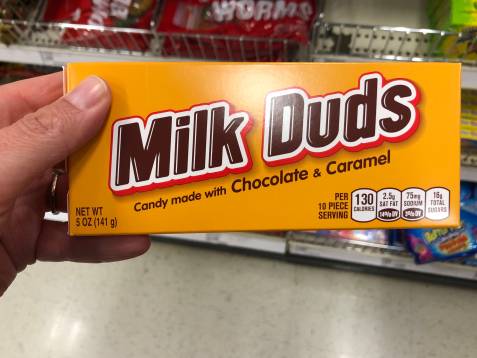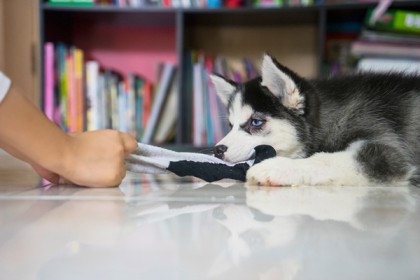Connect with a verified veterinarian in minutes. Licensed vets are available 24/7 to answer your questions. No need to worry about your furry family member.
Dogs eat the strangest things, from poo and roadkill to bricks and bristles! Our canine companions are not known for being discerning eaters. In fact, just the opposite.
Why Would my Dog Eat Bristles?
That’s a great question; unfortunately, there’s no one answer. If the bristles were from your hairbrush, then it could be that your dog smelt you and wanted to get closer. This is one of the reasons they eat socks, dirty underwear, and more.
In the case of a grill bristle brush, the brush could smell like the food cooked on the grill. That’s all it takes to attract a dog! Think of all those hamburgers, steaks, cobs of corn, and everything else you’ve enjoyed on the grill. Your canine companion loves those foods and smells as much (if not more) as you do!
Of course, there’s no telling why dogs eat what they do. Sometimes it’s due to boredom, anxiety, trying to get attention (even negative attention is something), or it can be due to an underlying medical condition.
So, if your dog regularly eats non-food items, it’s probably a good idea to get him checked out by the vet. This way, if your fur baby does have something wrong, it can be detected and treated.
What to Do If Your Dog’s Eaten Bristles
First, determine the type of bristles your fur baby has eaten. Were they metal bristles or nylon? How long were they? About how many did your dog eat?
Next, call the vet and get their advice. They will have the best information on what needs to happen next. Depending on the type and number of bristles eaten, the vet may ask you to bring your fur baby to be checked. This is a good idea, especially if your canine companion has eaten metal bristles.
The metal bristles could cause tears or punctures in the dog’s esophagus, stomach lining, or intestines. Even if the dog only ate a few bristles.

Review symptoms, medications & behavior to keep your pets healthy with a Vet Online in just minutes.
Ask a Vet Live NowSymptoms of Eating Bristles in Dogs
You may notice these symptoms if your dog has eaten bristles:
- Nausea
- Unsettled
- Discomfort on abdominal palpation
- Vomiting
- Abdominal pain/swelling
- Lack of appetite
- Lethargy
- Diarrhea
- Constipation
If your dog shows any of these symptoms, it’s time to call the vet. This could be a medical emergency.
Treatment for Eating Bristles in Dogs
If your dog has eaten a large number of bristles (metal or nylon), there’s a chance he could develop an intestinal blockage, punctures, or tears in the digestive tract. This type of issue needs to be treated as soon as possible; otherwise, it could end in death.
The treatment options include surgical removal of the bristles, endoscopic removal of the bristle or closely observing the dog for a period of time.
If treated as soon as possible, most dogs will go on to a full recovery.
Connect with a verified veterinarian in minutes. Licensed vets are available 24/7 to answer your questions. No need to worry about your furry family member.

Emma Chandley, BVetMed MRCVS PGCertSAS
This article has been reviewed and approved by an independent Veterinarian: Emma graduated from the Royal Vet College in London in 2011. She has a keen interest in surgery and went on to do a post graduate certificate in small animal surgery and was then awarded advanced practitioner status in the same discipline.
Review symptoms, medications & behavior to keep your pets healthy with a Vet Online in just minutes.
Ask a Vet Live Now






